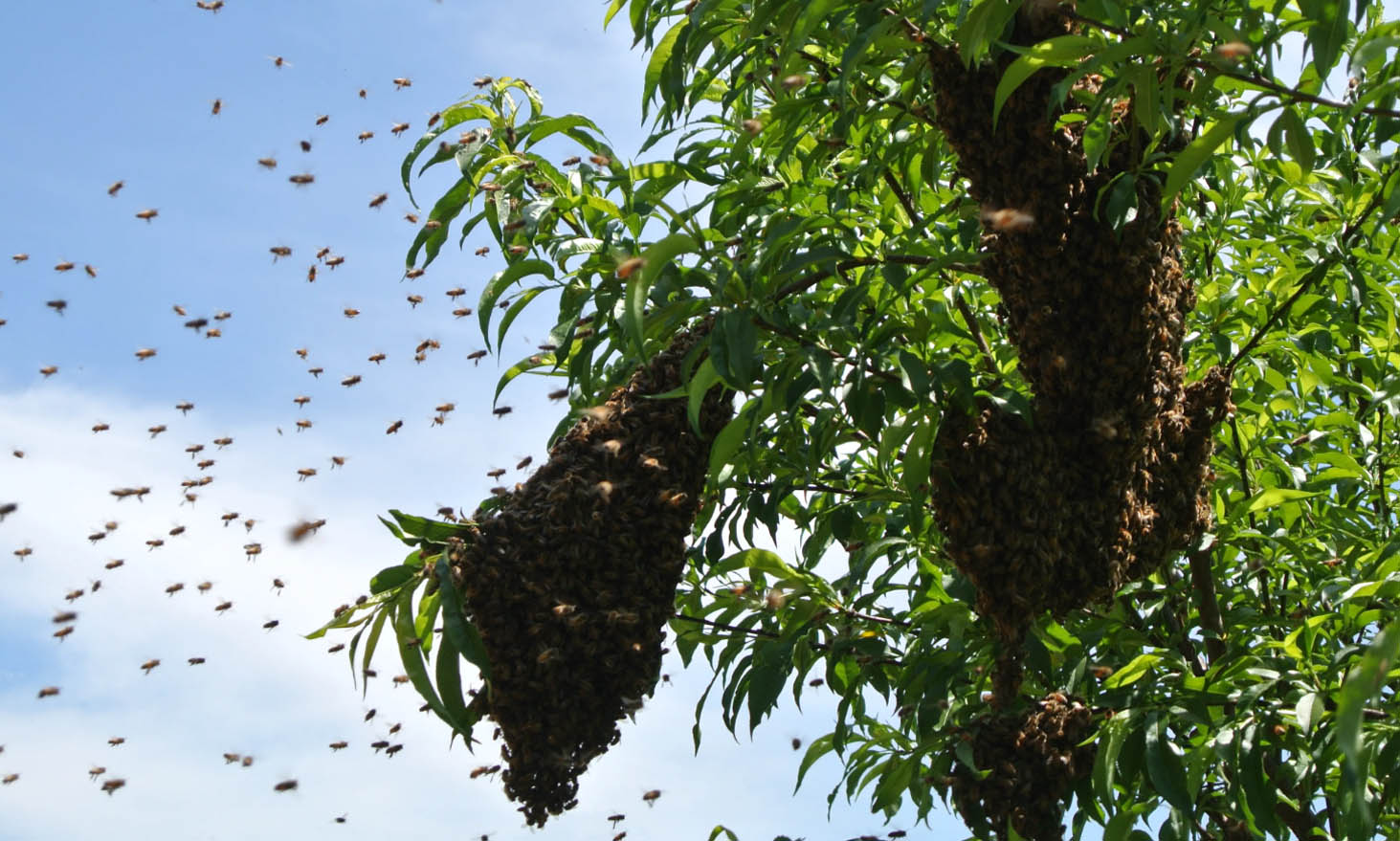Bees play a vital role in the food chain, as they are responsible for pollinating approximately 90% of crops worldwide.
This is a huge benefit to us, but they also cause problems occasionally; bees have a habit of building their hive in garages, sheds, or chimneys.
Swarms of bees are now becoming more common in the UK, and are spotted in early spring or early summer.
Bees are less aggressive than wasps and pose less danger to humans. If they are left undisturbed, they won’t bother you. However, large numbers of bees are intimidating and many people will feel more comfortable having them removed. Swarms may consist of several hundred or several thousands of bees.
Swarming is part of the process of reproduction for bees. They swarm due to their hive becoming overcrowded, and split into two or more groups. Or they abscond with the queen for a variety of reasons, such as a lack of food or water; disturbance by animals or humans; or weather changes. Some bees will scout for a location to build a hive before the swarm travels there. The colony will create new queen cells, and allow the queen to lay eggs. A new queen will then take control over the hive after the swarm has dispersed.
It’s possible to witness a swarm near or on your property, which hasn’t yet established a colony. If they don’t move on, it’s time to deal with the swarm by calling a professional pest controller.
An expert has specific ways to remove a cluster of bees safely. This involves coaxing the queen into a bag or box and relocating to a more desirable area. The rest of the swarm follows the queen, therefore removing the colony away from your property. Our team is also in contact with beekeepers who are often happy to take the swarm and give the bees a new home.
Occasionally, bees swarm in areas that are dangerous or inaccessible for our team to safely remove them. In this event, an insecticide can be used; however, we can use a non-residual insecticide that won’t endanger other bees in the area.

